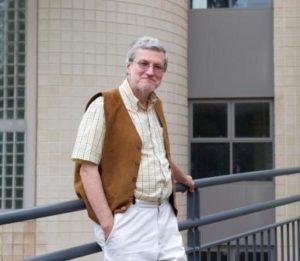
The list of Wall Street executives criminally prosecuted for their roles in precipitating the 2008 Global Financial Crisis is by no means exhaustive.
In fact, it’s virtually non-existent.
Despite being directly culpable for the worst financial crisis since the Great Depression, only a handful of lower-level Wall St investment bankers have been held accountable for the grossly fraudulent activities that led to the collapse of the world’s economy, leaving millions of people without jobs, homes and retirement funds.
Speaking at a Flinders University seminar this week, criminologist Professor David Friedrichs said the Global Financial Crisis was a “crime on a grand scale”, triggered by Wall Street bankers who packaged and sold bad mortgage loans that would never be paid back.
“Before the GFC hit, sub-prime mortgages were sold to the middle class and employed but Wall Street decided to create a new market whereby they securitised vast numbers of toxic subprime mortgage loans granted to people with no or low incomes at a higher interest rate,” Professor Friedrichs said.
“The Wall Street financial institutions knew or should have known that these investments would fail, as they did, but they sold them to investors anyway,” he said.
“They sold these loans at different levels of risk and got the credit agencies to rate them as AAA investments, which means they were very safe, but in reality they were ridiculously risky.
“Consequently, the vast majority of low income earners took out mortgages for loans they could never afford – in one case a Californian fruit picker who earned US$17,000 a year was given a loan of US$750,000 – then people started defaulting, there were foreclosures and the whole house of cards fell, monumentally.
“But the mortgage providers didn’t have to worry about how people were going to pay back the loans, they just took their fee from Wall Street and got their bonuses up front while the Wall Street executives made hundreds of thousands of dollars, if not millions, getting the deal done.”
Professor Friedrichs, a Distinguished Professor of Sociology/Criminal Justice at the University of Scranton in Pennsylvania, arrived at Flinders this week to deliver the seminar Wall Street: Crime Never Sleeps.
As part of the lecture, Professor Friedrichs discussed the prominent Goldman Sachs investment bank and its alleged history of deceit, from the 1929 Wall Street crash that led to the Great Depression to its role in the collapse of the entire Greek economy.
He commended Iceland for being the first country to prosecute one of its leaders as well as top bankers responsible for Iceland’s financial collapse, and cited a number of complex reasons why the US Government has failed to criminally prosecute Wall Street executives for the systemic fraud that triggered the GFC.
Such reasons include anti-terrorism taking priority after 9/11 and the US Government allowing Wall Street to “pay its way out of trouble” by making huge financial settlements: “Goldman Sachs handed over $550 million to settle the claim they sold a securitisation package knowing it was designed to fail, but they were never asked to admit they’d done anything wrong.”
“It’s far more difficult to prosecute prestigious, wealthy bankers than a 16-year-old mugger – these are sophisticated people, they hide their tracks and hire the best lawyers.
“It’s somewhat disturbing that the chief of the US Government’s Criminal Division, Lanny Breuer, resigned from his government position and is now working for a corporate law firm that represents the very banks that he, as chief of the criminal division, would have been prosecuting.
“Furthermore, lots of top people depend on Wall Street for big campaign donations, from President Obama down, so they will never go after the very people they depend upon to run for office.”
Professor Friedrichs, who co-authored a chapter in the new book Criminal Justice in International Society, edited by Flinders Professor Willem de Lint, Associate Professor Marinella Marmo and Dr Nerida Chazal, said until society recognises the GFC as a crime, history will no doubt repeat itself.
“Here we are almost six years past the peak of the crisis and Wall Street is still focused laser-like on producing the largest financial returns in the shortest period of time, for the sole enrichment of Wall Street insiders.
“To my mind, the architecture of the sector should be focused laser-like on building investments and new business that will give young people a future rather than benefiting Wall Street.”

